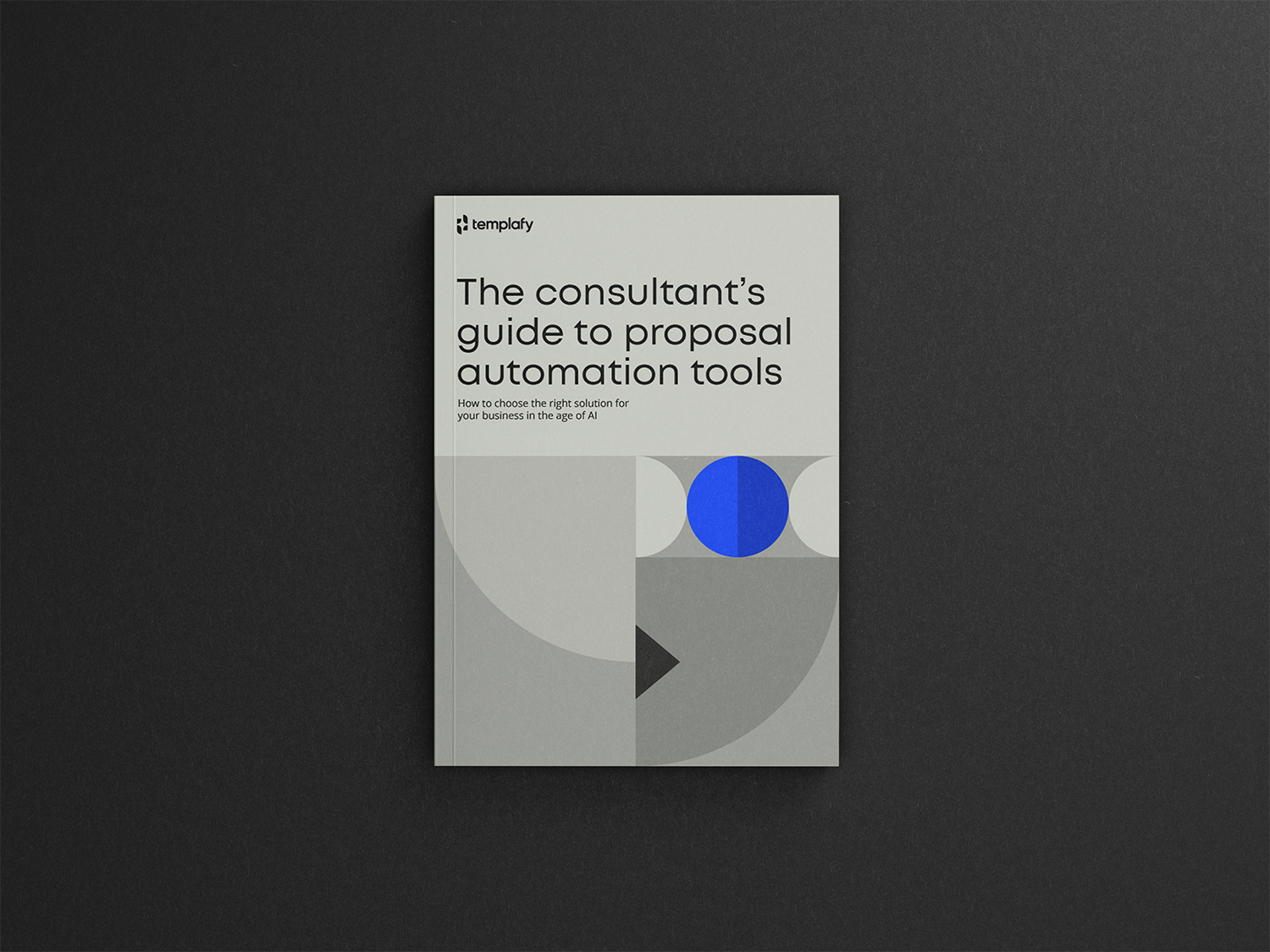Document automation for law firms and legal teams

How top lawyers are working faster, reducing risk, and staying compliant with smarter workflows
Almost by definition, legal work is a mixture of high-level advisory work and routine tasks.
On one hand, lawyers are asked to apply their expertise and judgment to complex legal scenarios. On the other hand, they also need to execute a significant amount of process-driven work: drafting documents, reviewing contracts, ensuring compliance, and handling the endless administrative tasks that are essential to maintaining a competitive legal practice.
No one goes to law school to spend hours copying and pasting text or manually tracking contract versions. Yet, many legal professionals find themselves bogged down by repetitive tasks that could be handled more efficiently with technology. This is where legal document automation comes in.
Legal document automation simplifies the way teams create, manage, and deliver documents. With the right tools in place, you can speed up drafting, reduce errors, and ensure every version is up to date and fully compliant.
What is legal document automation?
Legal document automation is the use of technology to create, manage, and update legal documents without starting from scratch each time. Instead of copying and pasting old contracts or searching through shared drives, teams use pre-approved templates with dynamic fields that can be automatically filled in based on case details, client info, or jurisdiction.
This differs from general legal automation, which may include e-discovery, billing, or legal research tools. Document automation focuses specifically on streamlining the drafting process, often the most time-consuming and error-prone part of legal work.
It’s valuable for both law firms and in-house legal departments. In firms, it speeds up client deliverables and supports consistency across partners and associates. For in-house teams, it helps legal stay aligned with business teams while maintaining control over risk, compliance, and branding.
Why manual legal document processes create bottlenecks
Manual document creation slows things down. Legal teams often rely on outdated templates, spend hours proofreading for inconsistencies, or recreate the same content over and over. These repetitive tasks drain time that could be spent on higher-value legal work.
There’s also a compliance risk. Missing clauses, outdated language, or inconsistent formatting can open the door to legal exposure. And when documents live across multiple systems with no version control, it’s easy for people to send or sign the wrong version.
In short: manual processes create delays, increase risk, and frustrate both lawyers and clients.
How legal document automation works
Document automation depends on dynamic templates, pre-approved document frameworks that adapt based on the specifics of each case, contract, or client. These templates aren’t static files that need to be edited line by line. Instead, they’re built with smart fields that automatically pull in the right details, like names, dates, clauses, and terms.
These fields connect directly to your internal systems, like your CRM, case management platform, or HR database, so the data is always up to date and consistent across documents.
Need to generate five NDAs with different jurisdictions? The system pulls in the correct clause based on the governing law. Creating a new employment agreement? Employee name, title, salary, and location are filled in automatically.
Many platforms also include conditional logic, which means the document can change based on inputs. For example, if the contract value is above a certain threshold, a specific approval clause is added. If it’s under, it’s left out.
When the document is ready, it can be sent straight for e-signature. This fully connected workflow cuts down on manual edits, reduces risk, and gets documents out the door faster.
Common documents that can be automated
Most legal teams handle a steady flow of recurring documents, many of which are perfect candidates for automation. These include:
- Contracts: Sales contracts, vendor agreements, employment offers
- NDAs: Customizable to reflect party roles or business purpose
- Service agreements: Including SLAs, MSAs, and client onboarding documents
- Internal memos and letters: Standardized communication templates
- Regulatory documents: Compliance disclosures, filings, and risk assessments
By automating these high-volume tasks, legal teams can shift focus to more strategic work without sacrificing accuracy, speed, or compliance.
Additional content
Moving from manual to automated document creation
What to consider when upgrading to an automated document management system.


Legal automation: Benefits and use cases
Automation isn’t here to replace lawyers; it’s here to make them more effective.
AI-powered tools significantly reduce human error in legal documents, ensuring consistency and compliance. With AI, legal teams can work more effectively by reviewing contracts, generating documents, and tracking cases in a fraction of the time.
Faster work, fewer mistakes
Legal document automation takes repetitive, manual drafting off your team’s plate. By using templates with dynamic fields and integrated data, lawyers can create polished, compliant documents in minutes. This not only speeds up workflows but also reduces the risk of human error, such as copy-paste mistakes or outdated clauses.
Built-in compliance and consistency
When documents are automated, you control the templates, the language, and the logic. That means legal disclaimers, formatting, and clause language stay consistent across the board. It also makes it easier to update documents when laws change; edit one central template and the change cascades across every future draft.
Happier clients, better collaboration
Clients expect fast, accurate responses, and automation helps legal teams deliver. Whether you’re turning around a contract or updating internal policies, automation tools make it easier for legal to work alongside business stakeholders. With shared access, tracked changes, and approval workflows, teams stay aligned without endless back-and-forth.
Grow without extra headcount
As legal teams handle more work with the same resources, automation becomes essential. It lets you scale output without hiring more staff, freeing lawyers to focus on complex issues instead of document grunt work.
Who benefits from legal document automation
Work smarter with automation
Discover new ways to save time and reduce errors with document automation. See how teams use smart tools to work faster.
Legal document automation supports how legal teams work, whether you’re in a law firm delivering client services or part of an in-house legal department supporting business operations. While the core benefits (speed, accuracy, compliance) are the same, how automation shows up day to day depends on your team’s goals.
Law firms: Faster client service, fewer manual hours
For law firms, efficiency is everything. Automating document workflows helps lawyers move faster without compromising quality or compliance. It reduces the time spent on repetitive tasks like formatting or clause insertion, and ensures every deliverable reflects the firm’s standards.
Common use cases include:
- Due diligence reports: Automatically extract and compile key findings from large volumes of documents.
- Contract review summaries: Pull out terms, risks, and obligations into clear, client-ready templates.
- Court submissions: Standardize legal filings to meet format and jurisdictional requirements with less manual formatting.
In-house legal teams: Consistency, compliance, and collaboration
In-house teams often deal with high volumes of recurring documents across departments. From HR to procurement, everyone needs legal input, but legal doesn’t scale easily without the right tools.
Automation helps in-house teams:
- Generate NDAs and employment contracts: Auto-fill templates with employee or partner details pulled from internal systems.
- Distribute internal policies: Ensure the latest versions are accessible and consistent across the organization.
- Manage regulatory filings: Keep content accurate across jurisdictions with pre-approved language and clause logic.
By automating these workflows, legal teams stay aligned with fast-moving business units. It’s a smarter way to scale legal support as the company grows.
Choosing a legal document automation tool
Not all automation tools are built for legal work. When evaluating your options, start with the essentials. Look for centralized template management, so your team always uses the latest version of each document. Integrations with systems like your CRM, HR platform, or document repository are also critical as they ensure accurate data flows straight into your templates.
You’ll also want user roles and permissions to control who can create, edit, or approve documents. And to support compliance, choose a tool that includes audit trails to track changes, versions, and approvals over time.
Questions to ask during evaluation
To find the right fit, ask practical questions during your search:
- Is the platform easy for non-technical users to navigate?
- Does it meet your security and compliance requirements (e.g., GDPR, SOC 2)?
- Can it scale as your team or document volume grows?
- Does it integrate with your existing tools like your DMS, CRM, or HR system?
- What kind of onboarding and training does the vendor provide?
- How responsive is their support team when issues come up?
- Can the tool handle complex legal workflows and conditional clauses?
The best tool will fit seamlessly into your existing workflows, reduce risk, and save time across teams. A solid foundation here sets the stage for smarter, more efficient legal operations.
Ensuring security and compliance in legal automation
One of the biggest concerns companies have when introducing any new technology, especially AI and automation tools, is security. This is especially relevant in the legal field, where documents often contain sensitive and confidential information.
Whether your law firm is a local practice or a global enterprise, here are the top security considerations to review when selecting a new legal automation tool:
- Data security and encryption: Legal automation platforms must use robust encryption methods to protect sensitive client and case data from unauthorized access. End-to-end encryption ensures that confidential information remains secure both in transit and at rest.
- Privacy and compliance regulations: Automation tools should comply with key data protection regulations such as GDPR, CCPA, and industry-specific legal standards. Firms should ensure that their chosen solutions provide built-in compliance features that align with legal and ethical obligations.
- Access control and user permissions: Law firms must implement strict access control measures, ensuring that only authorized personnel can view, edit, or approve automated legal documents. Role-based access and audit trails help maintain accountability and prevent unauthorized changes.
- AI transparency and governance: If AI is used in automation, firms must ensure transparency in how algorithms make decisions. Legal professionals should be able to review and verify AI-generated content to prevent potential errors or biases in automated workflows.
- Secure cloud and on-premises options: Many legal teams use cloud-based automation tools, but it’s essential to choose solutions that offer secure hosting environments. Some firms may prefer on-premises deployment options to maintain complete control over their data.
- Regular audits and compliance checks: Ongoing monitoring and audits of automation platforms help firms ensure continued compliance with evolving regulations. Implementing periodic reviews of automation workflows can identify potential security risks before they become significant threats.
How Templafy supports legal document automation
Templafy helps law firms streamline their document workflows by providing a centralized platform for document automation, management, and compliance. With Templafy, legal teams can generate contracts, reports, and other essential documents quickly and accurately, ensuring brand consistency and reducing errors.
The platform is designed to integrate seamlessly with existing legal software, so teams always have access to up-to-date templates and can automate repetitive tasks. Instead of hunting for the right document or manually entering data, legal professionals can pull in the latest templates and auto-fill key details in seconds.
Templafy also acts as a single source of truth for legal documents. Thanks to centralized management and clear user roles, everyone on the team can access the most current, compliant templates, ensuring all legal communications are accurate and aligned with regulations.
With dynamic fields that auto-populate client details and case specifics, document prep is faster and more efficient. Legal teams can generate high-quality, professional documents in minutes without worrying about formatting, errors, or outdated templates.
How to get started with legal document automation
Rolling out document automation doesn’t have to be overwhelming. Start small, build momentum, and scale at your own pace. Here’s a step-by-step checklist to guide your implementation.
Checklist: How to get started
Step 1: Identify your most-used templates
- Start with high-volume documents like NDAs, engagement letters, or service agreements.
Step 2: Clean up and standardize template content
- Review and update formatting, legal language, and branding for consistency.
Step 3: Choose your automation tool
- Look for features like centralized template management, data integrations, user roles, and strong security.
Step 4: Onboard your legal team
- Train key users and get early input from stakeholders to build engagement and ownership.
Step 5: Test and refine
- Launch a pilot program with a small group, gather feedback, and fine-tune the setup.
Step 6: Expand across teams and document types
- Add more templates and bring other departments into the workflow once the process is running smoothly.
Bonus: How to ensure widespread user adoption across the firm
- Offer training tailored to different roles (lawyers, admins, business users)
- Integrate with current systems like your DMS, CMS, or CRM
- Appoint automation champions in each department
- Highlight quick wins to build momentum and encourage firm-wide adoption
Legal work is changing—is your document workflow ready?
The top legal teams have always competed to recruit the most talented lawyers on the market. But having talent isn’t the same as using it wisely.
Legal document automation frees professionals from the admin work that slows them down, so they can focus on strategy, analysis, and delivering real value to clients.
Early adopters are setting a new standard for accuracy, compliance, and speed. They’re winning more clients, scaling faster, and reducing risk without burning out their teams.
Whether you’re part of a law firm or an in-house legal team, now is the time to rethink how your documents are created, managed, and delivered. And the sooner you start, the more impact you’ll see across your entire legal operation.
See it in action
Templafy is helping law firms automate thousands of hours of document work every month. Book a demo now.



